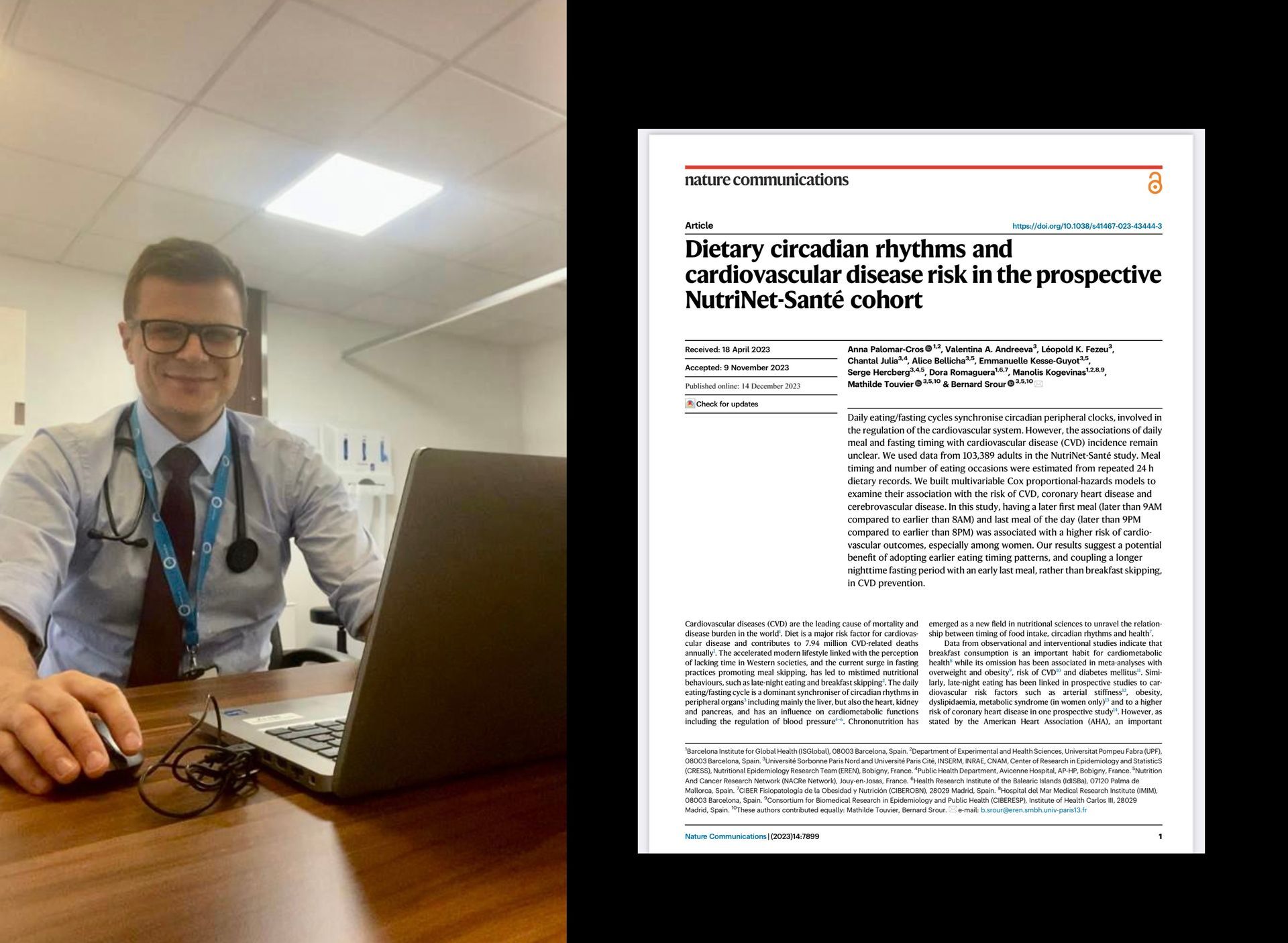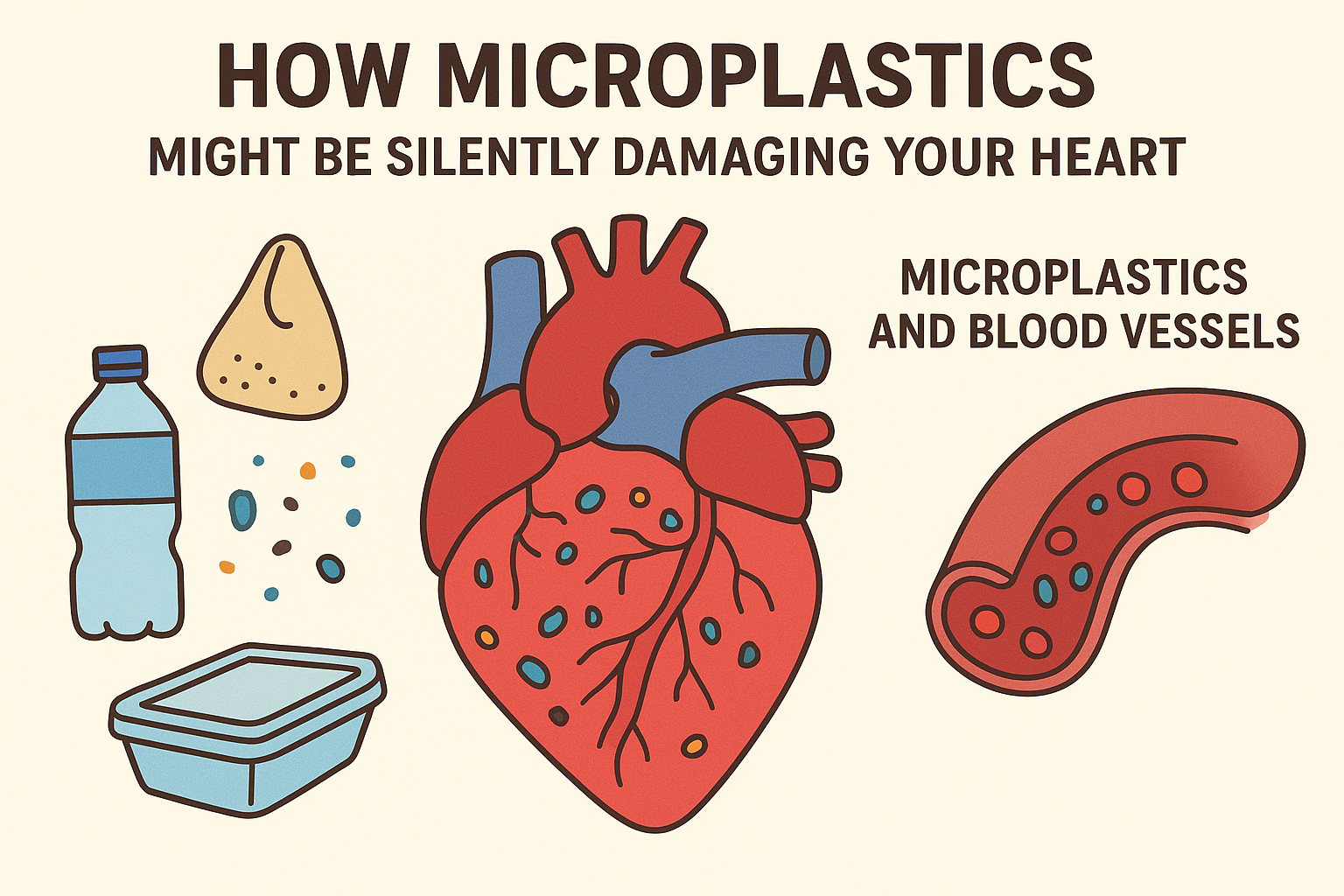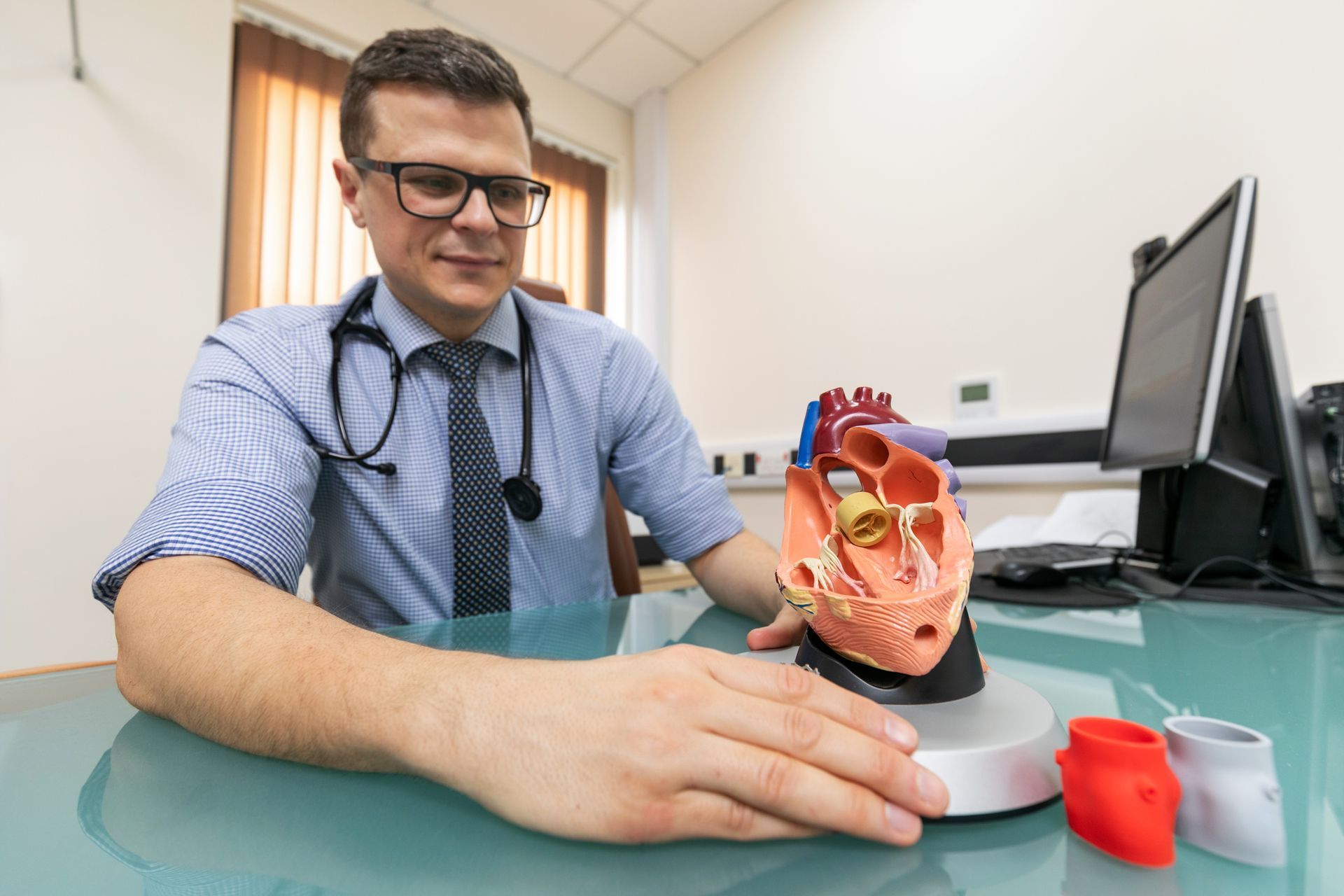Is SKIPPING MEALS good for Your HEART?

Is SKIPPING MEALS good for Your HEART?
- Eating Your FIRST Meal later than 9am and LAST Meal later than 9pm was linked to higher risk of CARDIOVASCULAR, disease, according to the study above, published in December 2023 in Nature communications journal.
- The above timings were compared to having the FIRST Meal earlier than 8am and the LAST Meal earlier than 8pm.
- This French study included 103,389 individuals, with mean age of 42.6 years, out if which 79% were females.
- The participants were followed up for a median of 7.2 years and 2036 incidents of CardioVascular disease were observed.
- Delaying FIRST Meal of the day was linked to higher risk for overall CardioVascular disease, especially in female participants. (HR, 1.06; 95% CI, 1.01-1.12; p=0.02)
- Interestingly, delaying the LAST meal by each additional hour was associated with an 8% increased risk of CerebroVascular disease (HR=1.08, p=0.02).
- More details in the full article below ⬇️:
https://www.nature.com/articles/s41467-023-43444-3.pdf
- The Authors concluded:
'Our results suggest potential benefit of adopting earlier eating timing patterns, and coupling a longer nighttime fasting period with an early last meal, rather than breakfast skipping, in CVD prevention'.
==============================================================
Title: "Fueling Your Heart: The Crucial Link Between Eating Healthy and Cardiovascular Health"
Introduction:
In an era where sedentary lifestyles and processed foods dominate our daily routines, maintaining cardiovascular health has become a paramount concern. A well-balanced diet not only plays a pivotal role in preventing chronic diseases but also serves as a cornerstone for heart health. In this pursuit, individuals often seek guidance from cardiology specialists, such as Dr Olechowski, a private cardiologist with a notable presence in Winchester and Basingstoke.
The Foundation of Heart Health: A Nutrient-Rich Diet
The heart, a tirelessly beating muscle, relies heavily on the nutrients derived from the food we consume. A diet rich in fruits, vegetables, whole grains, lean proteins, and healthy fats contributes significantly to the prevention of cardiovascular diseases. Dr Bart Olechowski emphasizes the importance of incorporating a diverse range of nutrients to support heart function. Fresh produce and whole grains provide essential vitamins, minerals, and fiber,
contributing to lower cholesterol levels and optimal blood pressure.
Navigating Dietary Pitfalls: The Role of Processed Foods
In our fast-paced lives, processed foods often find their way into our meals, bringing with them excessive amounts of salt, sugar, and unhealthy fats. Dr Olechowski, as a private heart specialist, underscores the adverse effects of these dietary choices on cardiovascular health. Excessive salt intake can elevate blood pressure, while high sugar and unhealthy fats contribute to obesity and insulin resistance. Adopting a mindful approach to food choices, with a focus on whole, unprocessed foods, can significantly reduce the risk of heart-related complications.
Beyond Food: The Importance of Lifestyle Choices
While a nutrient-rich diet is fundamental, Dr Olechowski highlights the significance of holistic lifestyle choices. Regular physical activity, stress management, and sufficient sleep complement a healthy diet in maintaining cardiovascular health. Engaging in regular exercise not only aids in weight management but also strengthens the heart and improves blood circulation. Dr Olechowski's comprehensive approach at Sarum Road Hospital in Winchester encompasses both dietary and lifestyle interventions, fostering a holistic perspective on heart health.
Conclusion: Nurturing Heart Health Through Informed Choices
The connection between eating healthy and cardiovascular well-being cannot be overstated. As a private heart specialist at Sarum Road Hospital in Winchester and a Cardiology Consultant at Candover Clinic in Basingstoke, his expertise extends beyond traditional medical interventions, encompassing personalized dietary recommendations and a holistic approach to heart health.











